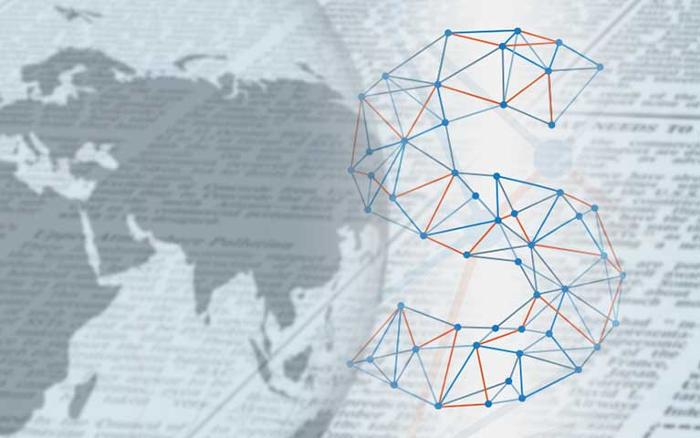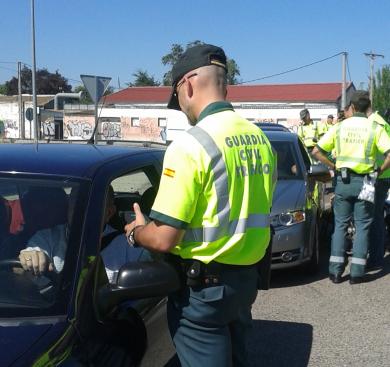

Public and private security will increase their collaboration in 2021
This year National Police, Guardia Civil, Mossos and Ertzaintza will promote contact with the private sector to better make use of the opportunities provided to them by the security industry, new technological developments and the increasing joint collaboration. Representatives for companies, AES and APROSER, as well as Law Enforcement Agencies, explain what this collaboration will entail in 2021.
Paloma Velasco, Executive Director of the Spanish Association of Security Companies (AES), said that they have long been promoting public-private collaboration. “In fact, every year we have a meeting with the Law Enforcement Agencies (FCS) where we assess the situation of the security industry” Additionally, “representatives of the National Police (Central Unit for Private Security), Guardia Civil (Service for Protection and Security and Central Intervention of Weapons and Explosives), Mossos de Esquadra and Ertzaintza share with our board of directors their strategic lines for every year, and we inform them of our work and plans”.
During the latest meeting, the AES explained to attendees of the FCS the activities carried out during the state of alarm and lockdown; and discussed their future projects, among these, holding meetings with the parliamentary representatives of the Commission of the Interior in Congress and the actions that the various areas are working on. They also informed on the problems that the security companies and the technological industry are encountering in the various environments where they are operating.
Safe environments
Ángel Córdoba, President of APROSER (Professional Association of Private Security Services Companies), states that “since the beginning of the pandemic security sector professionals have become necessary people working on the front lines, helping the population and keeping environments safe. “During all this time we have witnessed a phenomenon of “health securitization”, where the work of these professionals has become essential”.
According to Córdoba, “work such as capacity control, maintaining social distancing or temperature monitoring, are now part of the new normal in the sector”. He also pointed out “how the implementation of new technologies has accelerated contributing to and complementing these new duties, for example by using thermographic cameras to control accesses, face mask detection systems or identification document readers that avoid direct contact”.
Córdoba stated that “private security companies are promoting their collaboration with the public institutions with the aim to improve citizen security through initiatives such as “Red Azul” by the National Police, or the “Coopera” program developed by the Protection and Security Service (SEPROSE) of the Guardia Civil. At autonomous community level, the Ertzaintza has the USPIOSP program, whereas the Mossos d’ Escuadra have implemented the initiative Xarxa de Col-laboració”.
The President of APROSER hopes that “the new duties that are being performed by the private security professionals, that are due to the new demands and needs of citizens, can be expanded and maintained in time as complementary services that may be performed under article 41.3 d) of the Law on Private Security”. Thus, “the successful experiences on access limitation or distancing among users carried out on the transportation infrastructure networks, in hospitals or large commercial centres and establishments, among other new entrusted duties, prove the need to implement new complementary duties to support public security, with the aim to provide citizens with a safer return to the new normal”.
The role of companies
Manuel Marí, Commercial Director with RISTER, said that collaboration between public agencies and private security is essential, both from the standpoint of the manufacturer and the distributor. “They both play an important educational role, presenting and demonstrating all of the new elements and training the staff involved in security system management”. In the case of the public agencies, “as the distributor we listen to their needs from their own point of view of the problem, presenting them with the solutions that best suit their particular case so that they can face the hazardous situations with guarantees”.
For Marí, it is obvious that “the public sector are experts in their work and we are experts in ours, therefore, the best way to succeed is presenting, demonstrating and training the public sector in the latest security technologies”. In 2021 “there will be many new elements in artificial intelligence based on video cameras, and the only way to make the most of this technology is to put together a good team between the manufacturer and the distributor”.
Law Enforcement Agencies
During the latest meeting of the AES with representatives of the Law Enforcement Agencies, held on the 24 November, the Main Inspector, Manuel Yanguas, Head of the UCSP (Central Unit for Private Security) of the National Police, explained the activities performed in 2020, among these “the use of drones for security and presentations for the professional soccer league, hospitals, on terrorism, international (nuclear and radioactivity protection, use of drones, etc.), Spain brand in Private Security, etc.”. And he informed that “the UCSP will begin, within its activities, to certify the private security teachers and to perform tests for bodyguards and security guards, a job which was previously performed by the training division of the police”.
Manuel Sánchez Corbí, head colonel of the Protection and Security Service of the Guardia Civil, explained the activities and new elements of the SEPROSE, and he made reference to the implementation of on-site police complaints and looking into false alarms. He announced that “the relations between the commands of the Guardia Civil and Private Security will be strengthened”.
Carles Castellano, with the Mossos, provided details on their activities and, regarding electronic security, he pointed out that in Catalonia there are 522,504 connected systems, managed by 98 ARC (alarm reception centres), which is a 61% increase in connections since 2015. They attribute it to “lower prices in technology, increased squatter occupation of homes and commercial campaigns to attract new clients”. And, he estimates that “in a couple of years the number of connections will double”.
Mònica Guanter, Head of the Private Security Service of the General Subdirectorate of Interior Security of the Generalitat, was happy to see in further detail what the private security industry entails, and was concerned that the Spanish products do not have the same export conditions as the rest of European countries. For the Ertzaintza, Paco Llaneza explained that they are working with the electronic head office, which was working well, and with the change in the emergency calling system, which would affect the transmission of alarms. Their main project for the future was to “return to normalcy” after the pandemic.





